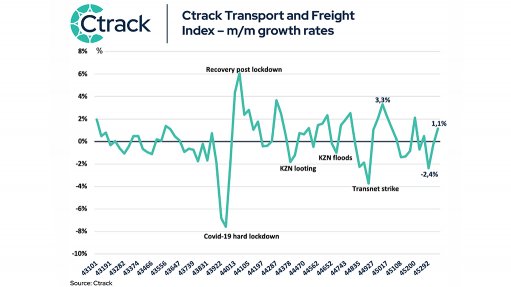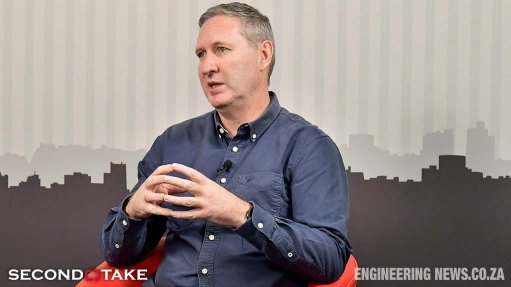FICO Survey: 42 Percent of South Africans Believe It Is OK to Exaggerate Insurance Claims
This article has been supplied as a media statement and is not written by Creamer Media. It may be available only for a limited time on this website.
Consumers see need for stronger fraud and security protection, but too many checks will turn them off
Many financial institutions consider their fraud teams to be a necessary overhead to cut fraud losses, but the latest consumer survey from global analytics leader FICO shows that a successful fraud protection function can drive sales and increase revenue. The survey also reveals consumer attitudes and preferences regarding fraud checks – and indicates that many will commit fraud themselves to get a loan or file an insurance claim.
When asked to rank their considerations in selecting a financial account provider, 36 percent ranked good fraud prevention as their number one concern and 43 percent ranked it as the second most important consideration, making it by far the most important measure of the eight in the survey. This suggests that financial institutions that can effectively communicate a focus on fraud protection will have a competitive advantage. Ease of use in accessing their banking services was selected as the number one criterion for 31 percent of respondents. Sound environmental and green policies were only considered a top consideration for 1 percent, while 35 percent had ranked it last of 8 in the list of considerations.
First-party fraud is considered acceptable by many
When asked about their attitudes to actions that financial institutions consider fraud, many people think that behaviours such as exaggerating income on applications or inflating insurance claims are either OK in some circumstances, or normal behaviour. While most think that people should never take these fraudulent actions, it is worrying that as many as 42 percent find it acceptable in at least some circumstances
“Many South Africans are experiencing a rise in the cost of living and might consider that they can ease their circumstances by falsifying information in applications for credit,” said Michelle Beetar, who heads FICO’s operations in Africa. “However, this misrepresentation is fraud. Financial institutions that can spot anomalies suggesting that information is being exaggerated or misstated can take positive action to protect themselves from losses which would occur when the customer cannot afford the repayments, and the customer can be prevented from going down a path they will end up regretting.”
When fraud protection methods don’t work well, they drive customers away
Customers must engage with fraud protection and security when they open a new account or when they use an existing account. An increased need to stop fraud and an industry drive to provide more security through the rollout of initiatives such as 3D Secure 2, means that people are seeing fraud checks more frequently and it is impacting their willingness to open and use some accounts.
66 percent said that identity checks when they make an online purchase using their cards have increased over the past year.
65 percent said that identity checks have increased when they log in to their bank accounts.
People also said that Identity checks that were too difficult or time-consuming have stopped them from opening a range of different accounts.
Once accounts are open, identity checks can still have an impact. Nearly one in four people surveyed (23 percent) said they have reduced or stopped use of their personal bank account because of identity checks, and 25 percent said the same about a credit card.
“Each customer interaction has a different risk profile which is influenced by behavioral signals, the ability and willingness of customers to use various authentication methods, the value of the transaction and the financial institution’s own risk appetite,” said Beetar. “Financial services providers need to be able to take a flexible approach that doesn’t put too many barriers in the way of legitimate customers, but equally doesn’t lower fraud defences.”
More South Africans think they have been victims of identity theft than in 2020
7.2 percent of South African survey respondents said that they know that their stolen identity has been used by a criminal to open a financial account. This is a significant increase from 4.6 percent in our 2020 survey. In percentage terms these figures may seem low, but when you equate it to number of victims, the scale of the problem becomes more alarming; 7.2 percent of the South African adult population is over 2.7 million people. An additional 6.9 percent think it is likely that their identity has been used to open an account fraudulently. Men (9.2 percent) are more likely than women (5.3 percent) to say their stolen identity has been used to open an account and those aged 65 and above (22.6 percent) are the most likely to say so.
“With almost a quarter of South African respondents feeling that it’s possible or likely that they been the victims of identity theft, financial institutions have an important role to play in establishing trust,” Beetar said. “Those who can demonstrate good practices that prevent fraudsters and money-launderers from opening accounts could enhance their reputation.”
Biometrics take the lead in account security – but people still want choice
People expressed a strong preference to use a wide variety of account security methods. Biometric methods are popular security choices. 62 percent have a strong preference for using a fingerprint scan, 52 percent a face scan and 38 percent an iris scan.
Despite biometrics becoming a popular choice in all countries surveyed, South Africa is among the leading proponents — for example, across all 14 countries surveyed in total 36 percent of people had a strong preference for a fingerprint scan, compared to 62 percent for South Africa. However, 40 percent of South Africans also had a strong preference for usernames and passwords, compared to just 23 percent for the rest of the world.
When it comes to receiving one-time passcodes, 38 percent rate receiving it by SMS as excellent for security, compared to 45 percent who believe receiving an OTP through their banking app provides excellent security and 16 percent who rate WhatsApp as excellent for security.
FICO surveyed 1,000 people each in 14 countries: South Africa, the USA, Canada, Brazil, Mexico, Colombia, Peru, Philippines, Malaysia, Thailand, Indonesia, South Africa, Germany, the UK and Sweden.
Comments
Announcements
What's On
Subscribe to improve your user experience...
Option 1 (equivalent of R125 a month):
Receive a weekly copy of Creamer Media's Engineering News & Mining Weekly magazine
(print copy for those in South Africa and e-magazine for those outside of South Africa)
Receive daily email newsletters
Access to full search results
Access archive of magazine back copies
Access to Projects in Progress
Access to ONE Research Report of your choice in PDF format
Option 2 (equivalent of R375 a month):
All benefits from Option 1
PLUS
Access to Creamer Media's Research Channel Africa for ALL Research Reports, in PDF format, on various industrial and mining sectors
including Electricity; Water; Energy Transition; Hydrogen; Roads, Rail and Ports; Coal; Gold; Platinum; Battery Metals; etc.
Already a subscriber?
Forgotten your password?
Receive weekly copy of Creamer Media's Engineering News & Mining Weekly magazine (print copy for those in South Africa and e-magazine for those outside of South Africa)
➕
Recieve daily email newsletters
➕
Access to full search results
➕
Access archive of magazine back copies
➕
Access to Projects in Progress
➕
Access to ONE Research Report of your choice in PDF format
RESEARCH CHANNEL AFRICA
R4500 (equivalent of R375 a month)
SUBSCRIBEAll benefits from Option 1
➕
Access to Creamer Media's Research Channel Africa for ALL Research Reports on various industrial and mining sectors, in PDF format, including on:
Electricity
➕
Water
➕
Energy Transition
➕
Hydrogen
➕
Roads, Rail and Ports
➕
Coal
➕
Gold
➕
Platinum
➕
Battery Metals
➕
etc.
Receive all benefits from Option 1 or Option 2 delivered to numerous people at your company
➕
Multiple User names and Passwords for simultaneous log-ins
➕
Intranet integration access to all in your organisation


















